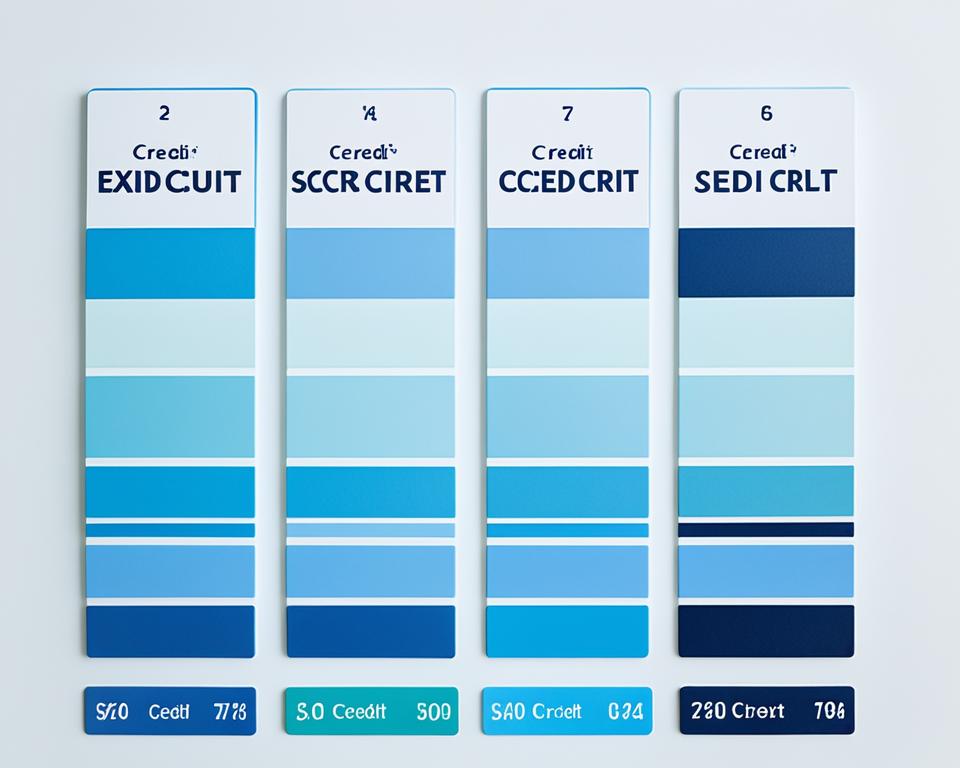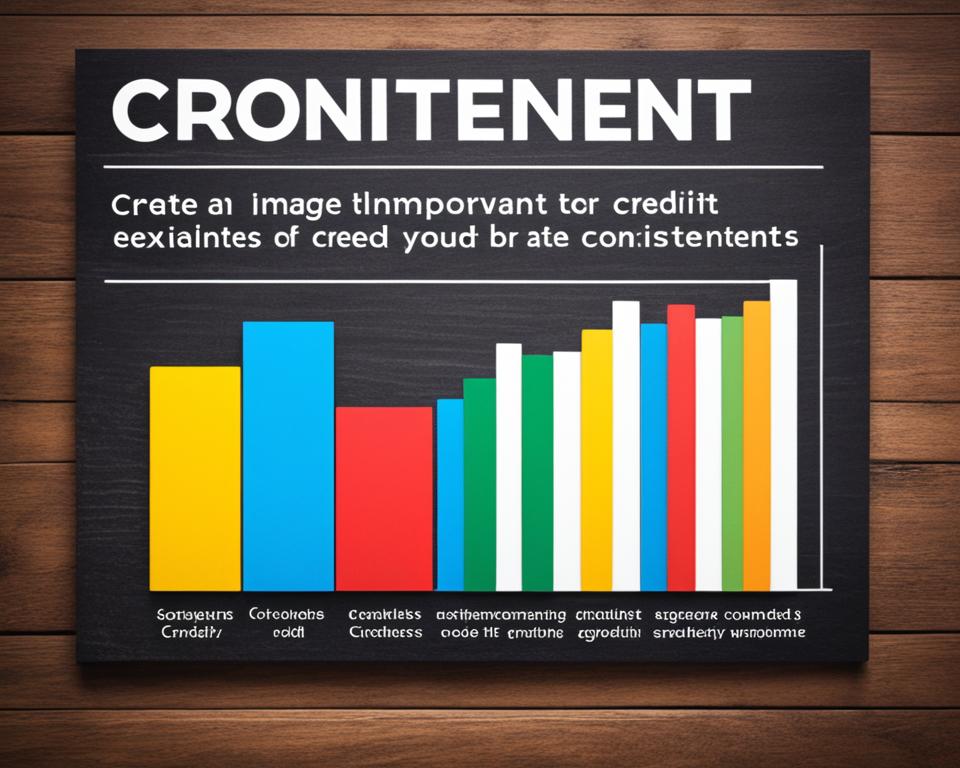Navigating today’s economy, the significance of a robust credit history cannot be overstated. The ability to unlock financial opportunities hinges on a crucial three-digit number: the credit score. For those seeking financial freedom and favorable loan terms, a good credit score is like a passport to a world of potential. This metric not only influences the likelihood of securing loans for substantial investments such as homes or education but also serves as a gateway to a variety of other socio-economic benefits.
From the perspective of lenders, insurers, and even employers, credit history offers a window into an individual’s fiscal dependability. The pursuit of good credit is a strategic endeavor that sets the tone for not only current financial dealings but also future aspirations. The journey towards achieving and maintaining good credit is a testament to an individual’s commitment to financial responsibility and, ultimately, their success in unlocking a realm of financial possibilities.
Key Takeaways
- Good credit is essential for obtaining favorable loan terms and enjoying financial freedom.
- A strong credit history can open the door to numerous financial opportunities and services.
- Having a good credit score can influence decisions by landlords, insurers, and employers.
- Maintaining good credit is key to securing lower interest rates and better credit offers.
- The impact of a credit score extends beyond loans, affecting everyday life and choices.
- A commitment to credit health demonstrates responsibility and foresight in financial planning.
Understanding Good Credit and Its Role in Financial Health
In today’s finance-driven world, building a strong credit history is a pivotal stepping stone towards a stable financial life. A good credit score is foundational to gaining access to the best financial tools and opportunities, transcending the realm of mere numbers to become a critical component of your economic persona.
The importance of credit score cannot be underestimated, as it encapsulates your financial past and presents a forecast of your future fiscal behavior. Let us delve into what constitutes a good credit score and why it should matter to every individual aiming for financial well-being.
Defining a Good Credit Score According to FICO
Navigating the intricacies of the FICO credit scoring model reveals that a good credit score is one that falls between 670 and 739. This is more than simply a number; it signifies your transition from subprime to prime borrower status. The prime category heralds a host of creditworthiness benefits, opening the door to prime interest rates and potentially saving a borrower thousands over the course of various debts.
Why Your Credit Score Is a Reflection of Financial Responsibility
Your credit score is a testament to your capability to helmm financial obligations. It is reflective not only of a disciplined financial life but also of foresight and maturity in handling financial commitments. A score above 670 does not merely mark you as a trustworthy borrower; it embodies a beacon of credit score importance, beckoning numerous benefits from reducing borrowing costs to increasing economic mobility.
Ultimately, good credit serves as an irrefutable evidence of your financial acumen and stands as a measure of your potential to embrace a fuller gamut of financial experiences. So, whether you are embarking on building credit history or maintaining it, a good score is your ally in the pursuit of enduring financial health.
Diving Into the Credit Score Ranges: What Numbers Mean for You
Demystifying the FICO credit score range is paramount when assessing one’s financial standing, with scores influencing everything from borrowing terms to insurance premiums. Here’s a succinct breakdown of how varying scores can impact your fiscal life, showcasing the clear demarcation between subprime and prime categories and their subsequent effects on access to financial products.

As lenders scrutinize your credit report, they primarily eye your credit score—a figure that encompasses your financial trustworthiness. It’s this score that can be instrumental in determining the trajectory of your financial journey. Venturing through the spectrum of credit score ranges reveals the unfolding narrative of your fiscal trustworthiness as perceived by potential creditors, employers, and more.
From the depths of ‘Poor’ to the peak of ‘Excellent’, the FICO score assigns numeric value to your financial habits, echoing the annals of your credit report and its impact on current and future opportunities. Let’s navigate these waters to glean insight into this critical numeral.
| Credit Score Range | Category | Real-World Impact | Typical Borrower Profile |
|---|---|---|---|
| 300-579 | Poor | May not qualify for credit or may need to pay higher interest rates | May face difficulty securing financing |
| 580-669 | Fair | Often considered subprime; could lead to unfavorable lending terms | At risk of higher rates and less favorable conditions |
| 670-739 | Good | Eligible for favorable rates and diverse credit products | Regarded as acceptable by most lenders |
| 740-799 | Very Good | Qualifies for better interest rates and terms | Viable candidate for competitive borrowing options |
| 800-850 | Excellent | Eligible for the best rates and premium credit products | Highly desirable to lenders and often receives best offers |
Crossing the threshold from a subprime to a prime FICO credit score range signifies a pivotal moment in your credit lifecycle. Hitting a score above 670 is akin to unlocking a door to a realm where the constraints of higher interests and restricted access begin to wane. Emphasizing the credit report impact, this transition is a financial rite of passage, heralding newfound possibilities and better economic terms, and materializing the practical differences each range signifies.
In conclusion, comprehending these credit score categories is more than an exercise in number-crunching; it’s about unlocking the full potential of your financial identity. Knowing where you stand can help you chart a course toward financial stability, guiding you from the unlit corridors of subprime to the brighter avenues of prime lending opportunities and beyond.
Building Credit History: Establishing Your Financial Track Record
Establishing a robust credit history is a fundamental aspect of financial literacy and empowerment. It’s a reflection of your financial reputation, which informs lenders about your creditworthiness—a crucial step in achieving monetary goals. Let’s explore the elements that contribute to building a credible credit history.
How Payment History Influences Your Credit Score
Arguably the most significant component in formulating your credit score, payment history is crucial for demonstrating credit reliability. This account consists of the frequency, punctuality, and consistency of loan and credit card payments. It’s no secret that timely payments can have a positive effect, constituting 35% of the FICO score calculation—a clear indicator of its importance in evaluating creditworthiness.
The Role of Credit Utilization in Creditworthiness
Credit utilization is another vital factor, indicating the percentage of available credit that you’re using at any given time. Financial experts often recommend keeping your credit utilization rate below 30% as a benchmark for good credit management. This figure eloquently captures your ability to manage credit without maxing out your resources, directly influencing 30% of your credit score.
Importance of the Length of Credit History
Longevity counts when it comes to credit profiles. The length of credit history encapsulates the duration of time your accounts have been operational, and a lengthier credit history can be beneficial. It comprises 15% of your FICO score and provides a clearer picture of long-term financial habits. Lenders look favorably upon a sustained history, associating it with a lower risk profile and more predictable financial behavior.
Building a solid credit history is a dynamic process wherein these three factors—payment history, credit utilization, and the length of credit history—interweave to create a comprehensive financial narrative. Paying heed to these areas can contribute significantly to your effort to build credit and ensure your financial track record remains impeccable.
Creditworthiness Benefits: Opening Doors to Financial Opportunities
Attaining financial stability with good credit is not an esoteric financial concept but a practical milestone with tangible benefits. The significance of having a noteworthy credit history cannot be overstated, as it stands as a litmus test, not just for securing loans but for delineating a person’s financial narrative. Guided by an understanding of good credit advantages, individuals can navigate their financial journeys more confidently.
One of the foremost benefits of maintaining good credit is the ease of approval for new credit applications. Like a key to an exclusive club, a commendable credit score opens up an array of borrowing options, from personal loans to cutting-edge credit cards. This access to credit reflects trust and reliability, enabling individuals to pursue significant purchases or invest in opportunities that would otherwise be out of reach.

In addition to enhancing approval odds, good credit is synonymous with reduced interest rates. The economic repercussions of this advantage extend far beyond the immediate loan or credit card; they resonate through every installment, reducing the cumulative cost of borrowing significantly. A percentage point here and there may seem minuscule in isolation, but when viewed across the lifetime of a loan, it represents substantial savings and contributes directly to one’s financial stability with good credit.
Moreover, favorable loan terms often accompany a higher credit score. Lenders are apt to extend more generous credit limits and propose more attractive loan conditions to individuals who exhibit reliable financial habits. In some cases, this could mean the difference between a standard variable-rate mortgage and a desirable fixed-rate option, affording individuals predictability in their financial planning and budgeting.
An undeniable ripple effect of strong credit extends to the broader conception of financial freedom. The advantages of good credit catalyze opportunities that traverse the traditional boundaries of finance. Whether it’s the ability to act on a sound investment opportunity or to furnish a new business venture, good credit stands as an enabler.
It’s clear that the merits of good credit are multifaceted, resonating throughout various facets of financial engagements. Achieving and sustaining a commendable credit score is not merely a financial accomplishment but a proactive investment in one’s future opportunities and aspirations.
The Importance of Good Credit in Everyday Life
Maintaining a good credit score extends well beyond the realm of loans and lines of credit. It’s a crucial component that permeates various aspects of everyday life, often working silently in the background to pave the way or present hurdles depending on its strength. Good credit’s influence can be experienced in moments both significant and routine, demonstrating its omnipresence in daily financial interactions.
From Rental Applications to Employment: Good Credit’s Impact Beyond Loans
When engaging in life’s major milestones, such as searching for a new apartment or pursuing a career opportunity, credit scores unexpectedly come into play. A favorable credit history is equated to reliability and responsibility, prompting landlords to consider good credit as a prerequisite for tenancy. The role of a good credit score in rent and employment decisions is further amplified as some employers review credit scores as part of the hiring process, reflecting the belief that fiscal responsibility translates to professional dependability.
How Credit Affects Insurance Rates and Utility Deposits
Credit’s impact stretches to insurance premiums as well. Those with sterling credit often enjoy lower insurance rates, as insurers correlate creditworthiness with claim frequency. Similarly, utility companies may waive deposits for consumers who have a track record of financial reliability. In this way, the influence of good credit on everyday life can potentially result in cost savings and smoothed processes across a diverse spectrum of services.
In essence, good credit serves as a silent advocate for one’s financial character, acting as a barometer for trustworthiness that has tangible effects on the cost and quality of everyday living experiences. The wider implications of a solid credit history advocate for a proactive approach to credit management, ensuring that doors of opportunity remain wide open in all walks of life.
How to Achieve Financial Stability with Good Credit
Achieving financial stability with good credit is integral to one’s fiscal health. A high credit score doesn’t just happen by chance; it’s the result of diligent financial practices and strategic planning. Recognizing the importance of credit for loans is essential, as it directly affects the terms and rates afforded to an individual. The pursuit of good credit, while a disciplined endeavor, reaps ample benefits that extend into every financial decision one makes. Here, we explore effective strategies aimed at leveraging good credit to its fullest potential.

Strategies for Lowering Interest Rates with a Higher Credit Score
A higher credit score offers an array of strategies for lowering interest rates. These strategies are fundamental for reducing the amount of interest paid over the life of loans and credit cards. Implementing these strategies is paramount to reinforce the notion that good credit equates to less expensive debt.
- Review and Improve Credit Reports: Ensuring that credit reports from agencies like Equifax, Experian, and TransUnion are error-free enhances credit scores, which can lead to lower interest rates.
- Debt-to-Income Ratio: Lenders consider this ratio when setting interest rates. A lower ratio demonstrates financial stability and may result in reduced rates.
- Credit Card Utilization: Keeping credit utilization below 30% not only improves credit scores but also positions borrowers for interest rate negotiations.
Leveraging Good Credit for Better Loan Terms and Credit Offers
Leveraging a sterling credit history improves one’s chances of receiving better loan terms and more attractive credit offers. Good credit acts as a beacon, signaling to lenders a borrower’s reliability and sound financial management, which often translates into more favorable borrowing conditions.
| Financial Product | Benefit of Good Credit | Possible Advantage |
|---|---|---|
| Personal Loans | Lower APR | Substantial interest savings |
| Credit Cards | Better rewards and incentives | Higher credit limits and bonus points |
| Mortgages | More competitive interest rates | Access to a broader range of loan products |
In the realm of financial stability with good credit, the empowered consumer can negotiate lower rates and seek out premium credit products, translating good credit into financial savings and opportunities. By employing an informed approach and maintaining a consistent and proactive credit management strategy, individuals shape their financial narratives and lay the groundwork for a stable and prosperous future.
The Role of a Good Credit Score in Loan Approvals
When it comes to navigating the financial landscape of loans and credit, a good credit score often acts as the north star guiding borrowers to successful credit application outcomes. It’s the cornerstone on which financial institutions base their loan approval rates, with a robust score substantially enhancing a borrower’s financial flexibility.
Indeed, financial experts regularly emphasize the importance of striving for a good credit score, given its far-reaching implications on one’s ability to procure funding when needed most. This indicator of fiscal trustworthiness and repayment capacity is critical, not just for major undertakings like home purchases or entrepreneurial ventures but for life’s everyday growth opportunities as well.
From access to premium credit card offerings to the negotiation of lower interest rates on personal loans, a good credit score is an influential factor. It opens doors to deals that those with lesser scores might only view from afar. Now, let’s examine the tangible benefits of good credit through the lens of loan approvals and financial agility.
| Credit Score | Approval Likelihood | Interest Rate Expectation | Financial Flexibility |
|---|---|---|---|
| Excellent (800-850) | Very High | Lowest Rates | High |
| Very Good (740-799) | High | Low Rates | Good |
| Good (670-739) | Good | Reasonable Rates | Moderate |
| Fair (580-669) | Moderate | Higher Rates | Constrained |
| Poor (300-579) | Low | Highest Rates | Limited |
The consensus is clear: a good credit score not only influences loan approval rates but also dictates the array of financial opportunities available to borrowers. It is not merely a statistic on paper but a reflection of a borrower’s reliability, influencing lenders’ confidence and willingness to provide funds.
In essence, maintaining a good credit score is vital for those who wish to achieve financial objectives with agility and assurance. Practically, it means punctual payments, wise debt management, and strategic financial behavior, all of which converge to bolster a credit profile that can support one’s aspirations.
As we continue to explore the multi-dimensional world of credit and finance, the role of a good credit score remains an unfaltering ally in the quest for economic empowerment and the opening of many a door to fruitful financial ventures.
Maintaining a Good Credit Score: Habits for Lifelong Benefits
Embarking on a journey to maintain a good credit score is akin to nurturing a garden; it requires regular attention, discipline, and a set of reliable techniques to flourish over time. The positive effects of such efforts are manifold, ranging from financial flexibility to achieving life goals. To shed light on how to sustain credit wellness effectively, it is paramount to explore both the consistent practices that build creditworthiness and the missteps to avoid along the way.

Why Consistency in Credit Practices Matters
Fostering consistency in credit practices is not merely about avoiding negatives; it’s about establishing a pattern of behavior that signals to lenders and credit agencies that you’re a low-risk investment. Timely payments and carefully managed credit utilization are, therefore, not just good habits but essential components of a credit-healthy lifestyle. The benefits of such consistency are unmistakable: a robust credit score that bolsters your negotiating power with financial institutions.
Avoiding Pitfalls That Can Damage Credit Scores
Awareness of the financial pitfalls that can hinder credit health is as crucial as adopting positive practices. The premature closure of old credit accounts, for instance, can inadvertently shorten your credit history, a move that could be misconstrued as volatility by lenders. Likewise, frequent credit inquiries might suggest to a potential lender that you are overextending financially. Staying alert to these risks ensures that the hard-earned progress towards achieving a good credit score remains intact for the long haul.
Adhering to these practices nurtures a strong financial reputation, ultimately unlocking doors to advantageous credit opportunities and setting the stage for lifelong economic benefits.
Navigating the Credit Report: Understanding Its Impact on Your Finances
The intricacies of a credit report hold immense value in the realm of financial decision-making. As a comprehensive record of an individual’s credit history, loans, and payment habits, it is a powerful tool that informs credit scores and, by extension, the ability to secure loans and negotiate terms. In recognizing the credit report impact, consumers can better manage their finances and make informed decisions.
- Credit reports encapsulate one’s financial reliability and discipline.
- Regular checks and prompt disputes against inaccuracies can uphold credit integrity.
- A precise report reflects true financial conduct, aiding in strategic decision-making.
To elucidate the credit report impact, consider these elements and their effect on a typical financial profile:
| Report Element | Impact on Credit Scores | Significance in Decision-Making |
|---|---|---|
| Payment History | Direct relation to creditworthiness | Indicative of repayment capability |
| Credit Utilization | Affects perceived financial strain | Infers responsible credit management |
| Length of Credit History | Correlates with financial experience | Implies stability and risk level |
| Errors or Discrepancies | Can unjustly lower scores | Necessitates vigilant monitoring |
Maintaining an accurate credit report is paramount; it’s the bedrock upon which financial decision-making rests. An untarnished report fosters confidence among lenders and results in a better assessment of one’s fiscal responsibility, driving positive outcomes in every avenue of financial engagement. Diligent oversight and correction of a credit report is a proactive step towards solidifying one’s financial foundation.
Regular monitoring and updating of credit reports enable individuals to ensure that every financial action reflects positively on their credit scores, paving the way for prosperous financial ventures.
Good Credit Advantages: How a Strong Score Strengthens Your Financial Portfolio
A strong credit score serves as a powerful pillar of a well-curated financial portfolio, offering a multitude of benefits that extend beyond mere access to funds. The advantages of maintaining good credit weave through the complex tapestry of personal finance, providing a robust framework for financial portfolio enhancement.
Consider good credit as a trusty compass in the financial wilderness. It guides individuals toward the most advantageous financial instruments and services, charting a course toward prosperity and stability. Good credit dovetails with good credit advantages, lending a strategic edge to those who possess it. It influences not just the present fiscal scenario but fortifies future financial endeavors as well.
How does one quantify the tangible impact of a strong credit score? The evidence lies in the layers of financial decision-making that it influences. From streamlined approval processes to the receipt of competitive interest rates, the score acts as a fulcrum on which financial leverage tilts in favor of the consumer. The following table outlines the key benefits of having a good credit score:
| Benefit | Description | Impact on Financial Portfolio |
|---|---|---|
| Access to Premium Financial Products | A strong score often grants entry into exclusive financial offerings including premium credit cards, elite loan products, and investment opportunities. | Enables diversification and sophistication of financial tools at one’s disposal. |
| Improved Approval Chances | Financial institutions view a strong credit score as indicative of stability and reliability, thereby improving the likelihood of credit approval. | Enhances the probability of strategic financial planning through timely securing of necessary credit. |
| Favorable Terms and Rates | A commendable credit score often results in lower interest rates and more favorable repayment terms for loans and credit lines. | Directly influences the cost-effectiveness of borrowing and repayment, leading to significant savings over time. |
| Negotiating Power | Good credit provides leverage when negotiating terms on loans, credit lines, and other financial agreements. | Empowers individuals to secure terms that align with their financial goals and capabilities. |
The litany of good credit advantages underscores its indispensability in crafting a resilient financial portrait. In a reality where creditworthiness translates to economic power, a stout credit score is your keystone for navigating the financial landscape and harnessing opportunities that bolster both immediate and long-term monetary aspirations.
Securing a strong credit score is like planting an acorn from which a mighty oak will grow, offering shelter and support through all financial seasons. Its intrinsic value is realized through the savings accrued from lower borrowing costs, the gratification of favorable credit lines, and the pride in being entrusted with the best the financial world offers.
In summation, vigilance over one’s credit is more than a mere practice; it’s a commitment to financial crescendo, where each calculated maneuver guided by good credit fortifies the foundation for enduring prosperity. Therefore, as we continue to thread through the landscape of personal finance, let the cultivation and preservation of a strong credit score be at the forefront of strategic financial maneuvering.
Debt Management: How Good Credit Influences Borrowing Costs
In the financial landscape, adept debt management is significantly determined by one’s credit standing. Exceptional credit is a beacon for economical borrowing, instrumental in tempering borrowing costs and ensuring economic resilience. As we explore the multifaceted relationship between credit scores and the financial sphere, it becomes evident how vital a healthy credit rating is for smart debt management.
Saving Money with Lower Interest Rates on Credit Cards and Loans
Good credit is undeniably a lever to pull for achieving more favorable borrowing rates. When credit cards and loans are negotiated under the auspices of a robust credit score, the result is often a decrease in interest rates—quintessential for long-term savings. Financial institutions regard high credit scores as a manifestation of fiscal dependability, thus offering lower rates as a token of confidence and incentive for responsible borrowers. This reduction in borrowing costs delegitimizes the dread of debt, enabling consumers to save money that might otherwise inflate an interest-heavy repayment.
Using Good Credit to Avoid Accumulating Excessive Debt
It’s not just about mitigation; good credit is proactive armor against the encroachment of excessive debt. Lenders frequently extend more gracious terms to those exhibiting commendable credit histories, delineating fewer fees and lower interest quotas. This fortification empowers individuals with good credit to finetune their financial leverage, evading the pitfalls that lead to unwieldy debt burdens. Moreover, access to favorable credit terms provides a buffer that allows for strategic financial planning instead of capitulating to the tumults of imprudent borrowing.
- Fiscal Prudence: Leveraging favorable borrowing costs to avoid the trap of high-interest debt.
- Credit Utilization: Utilizing a percentage of available credit commensurate with one’s repayment capability.
- Loan Selection: Choosing credit products judiciously, with an eye toward optimal interest rates and terms.
- Future Financial Planning: Structuring debt with a long-term strategy informed by the advantages of good credit.
Maintaining a good credit score, therefore, emerges not merely as a financial stratagem but as a fundamental element of responsible debt management. The ability to control borrowing costs through stellar credit is vital in steering clear of oppressive debt and constructing a more stable financial future.
Importance of Credit for Loans: The Long-term Effects on Financial Planning
The importance of credit for loans is a fundamental tenet of sound financial planning. Good credit scores unlock advantageous loan terms—lower interest rates, better repayment conditions, and increased lending limits—which all play a crucial role in sculpting an individual’s financial future. A strong credit history is the linchpin in acquiring cost-effective financing options that bear long-term benefits, ultimately affecting financial stability and growth.
A robust credit score reflects fiscal responsibility and positions individuals for success when navigating loan agreements. Understanding the correlation between creditworthiness and borrowing costs is essential for anyone looking to harness the power of credit in their personal financial strategy. Let’s delve into how good credit shapes your financial prospects, not just in the present, but for years to come.
Here are some key ways that credit underscores financial opportunities and the long-term effects it can have:
- It significantly reduces the total interest paid on various long-term debts like mortgages and auto loans.
- It provides leverage when negotiating loan terms, potentially saving thousands over a loan’s life span.
- It can enhance financial flexibility, enabling refinancing opportunities when market rates become favorable.
- It affects insurance premiums, impacting the overall cost of risk management over time.
- It may influence employment opportunities, affecting career growth and earning potential.
In the context of loans, possessing good credit can mean the difference between a financial plan that thrives and one that merely survives. The negotiating power granted by good credit can lead to substantial savings and investment opportunities, laying the groundwork for a secure financial legacy.
| Loan Type | Impact of Good Credit | Financial Planning Benefit |
|---|---|---|
| Mortgage | Access to lower interest rates | Reduces monthly payments, freeing up income for other investments |
| Auto Loan | Eligibility for promotional 0% APR offers | Allows for potential allocation of funds to faster-depreciating assets or savings |
| Student Loan | Possibility for smaller interest surcharges | Decreases the total cost of education and impacts savings rate |
| Personal Loan | Opportunity for unsecured loans with competitive rates | Provides options for debt consolidation and impacts credit utilization |
| Credit Cards | Qualifies for cards with better rewards and lower fees | Enhances cash flow with rewards and improves credit management |
Encouraging proactive measures towards maintaining and improving credit scores should be a key element in anyone’s financial planning efforts. Whether it’s reviewing credit reports for inaccuracies, keeping credit card balances low, or making loan payments on time, such actions are not just beneficial, they are imperative to a prosperous financial future.
Smart financial planning, augmented with a solid credit history, is a crucial strategy for anyone aiming to reduce borrowing expenses and achieve fiscal abundance.
Conclusion
The tapestry of one’s financial journey is interwoven with the threads of credit score importance. As we have explored, a strong credit history is not a mere embellishment on one’s financial profile, but a fundamental asset, integral to achieving financial goals. It dictates the course of financial opportunities, influencing not only lending outcomes but also critical life decisions such as housing and employment. To build and maintain a strong credit history is to lay a sturdy foundation upon which financial stability is firmly established.
Maintaining a commendable credit score is akin to cultivating a garden that yields fruit throughout all seasons. It’s a continuous process that, when managed with care and strategy, bestows upon one an abundance of financial benefits and flexibility. As we navigate through the ever-evolving fiscal landscape, it is this score that stands as a beacon of fiscal responsibility, lighting the path towards economic growth and prosperity.
In essence, the fabric of one’s financial life is invariably colored by their credit practices. Understanding the holistic impact of credit on one’s financial narratives cannot be undervalued. As we strive to grasp the full spectrum of its significance, it becomes abundantly clear that to build and maintain a strong credit history is not just a financial task, but a cornerstone in achieving life’s myriad goals. The empowerment derived from such fiscal prudence echoes through every aspect of one’s economic existence, proving that good credit is indeed a priceless ally in the pursuit of a thriving financial future.
FAQ
What is considered a good credit score by FICO standards?
A good credit score according to FICO falls between 670 and 739. This range elevates a borrower from “subprime” to “prime” and often results in eligibility for better interest rates.
How does a credit score reflect an individual’s financial responsibility?
A credit score indicates an individual’s past behavior with credit and predicts their ability to manage future financial obligations. A higher score suggests a responsible credit history and financial management.
Why is it important to understand the different FICO credit score ranges?
Knowing the FICO credit score ranges can help you understand where you stand in the eyes of lenders and what kind of borrowing terms you might receive. It can define your access to credit and the cost of borrowing money.
How does payment history influence your credit score?
Payment history is the most significant factor in calculating your credit score, accounting for 35% of the FICO score. Consistently making payments on time can significantly boost your score.
What role does credit utilization play in determining creditworthiness?
Credit utilization, which is the ratio of your credit card balances to your credit limits, should ideally be below 30%. High credit utilization can signal to lenders that you’re over-reliant on credit, potentially impacting your creditworthiness negatively.
Why is the length of credit history important?
A longer credit history gives lenders more information to assess your financial behavior over time, indicating stability and predictability, which can enhance your creditworthiness.
In what ways does good credit open doors to financial opportunities?
Good credit can help you qualify for loans and credit cards with lower interest rates and better terms, offer higher credit limits, and even influence the chances of you getting approved for renting an apartment or getting certain jobs.
How can good credit impact your day-to-day life outside of loans?
Good credit can make a substantial difference in everyday life, as it may affect rental application processes, job opportunities, insurance premiums, and deposits for utilities.
What strategies can be used to lower interest rates with a higher credit score?
With a higher credit score, you can negotiate better terms with lenders, potentially consolidate or refinance existing debts at lower rates, and secure credit products with more advantageous interest rates.
How can leveraging good credit result in better loan terms and credit offers?
Good credit can give you a stronger negotiating position, access to a broader range of loan products, larger loan amounts, extended repayment terms, and rewarding credit card offers with bonuses and rewards points.
Why is consistency in credit practices important for maintaining a good credit score?
Consistency in credit practices, like making payments on time and keeping credit utilization low, helps demonstrate to lenders that you are a reliable and responsible borrower, which is reflected in a strong credit score.
What pitfalls should be avoided to prevent damage to credit scores?
To prevent harming your credit score, avoid late payments, maxing out credit cards, applying for credit too frequently, and closing older credit accounts, as this can shorten your credit history.
Why is it important to regularly check your credit report?
Regularly checking your credit report is critical to ensure that it accurately reflects your credit history and to identify any errors or fraudulent activity that may impact your credit score if left unaddressed.
How does a strong credit score strengthen your financial portfolio?
A strong credit score can provide access to premium financial products and services, secure more favorable credit terms, and may improve your ability to negotiate with lenders, all of which strengthen your financial portfolio.
How does good credit influence borrowing costs and debt management?
Good credit typically results in lower interest rates on credit cards and loans, which means you pay less over time. It can also help in avoiding the accumulation of excessive debt by obtaining more favorable loan conditions.
How does good credit affect long-term financial planning, particularly regarding loans?
Good credit affects long-term financial planning by enabling you to secure loans with more favorable terms. This can have a significant impact on both your current budget and your future financial goals, as you may pay less in interest over the life of a loan and potentially borrow more as needed.





